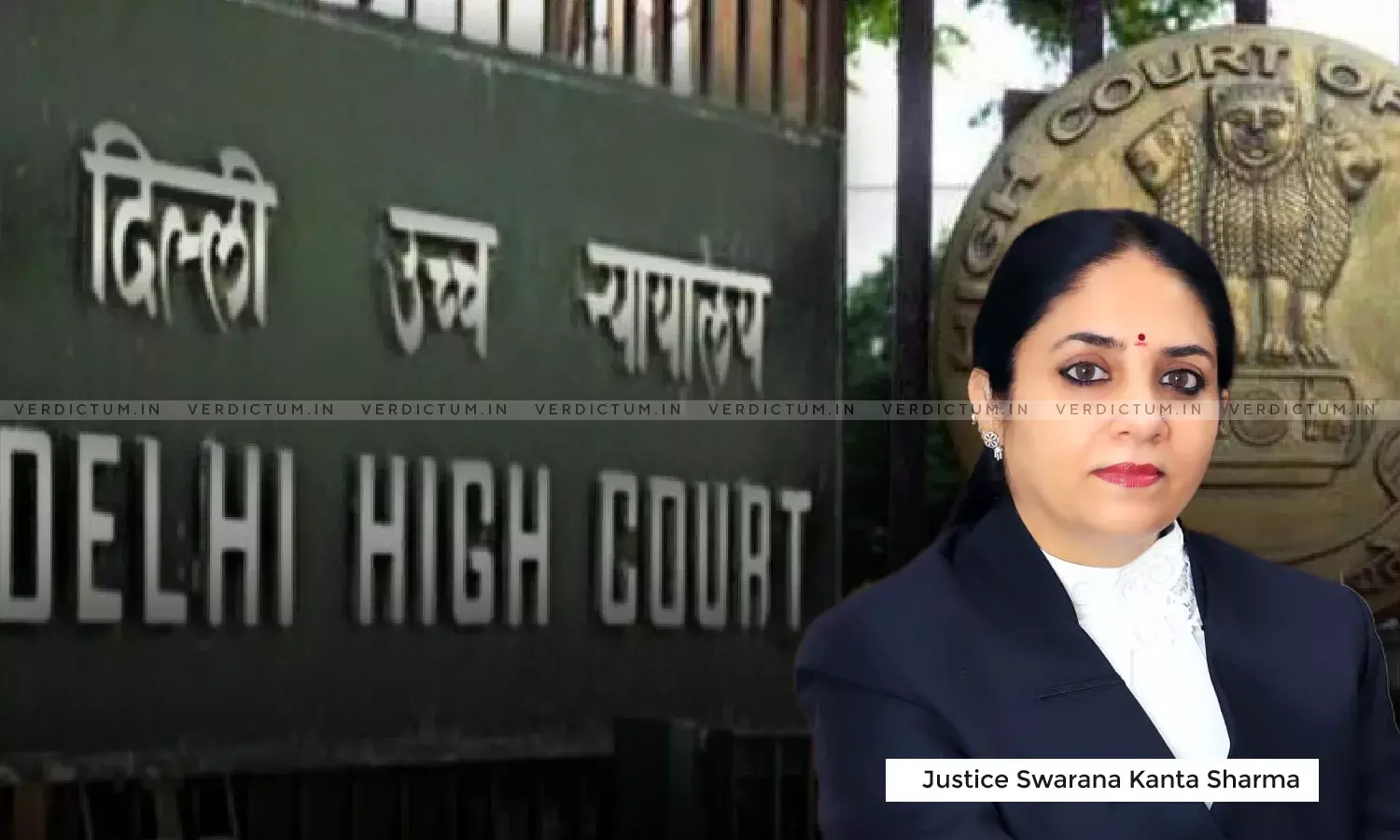Husband’s Sudden Income Drop Suggests Evasion Of Maintenance: Delhi High Court Upholds Interim Maintenance Order
A revision petition was filed by the husband who had challenged the Family Court's decision awarding ₹25,000 per month as interim maintenance.

Justice Swarana Kanta Sharma, Delhi High Court
The Delhi High Court has upheld an order of a Family Court that relied on the husband's Income Tax Returns (ITRs) from two years prior to assess his financial capacity for the purpose of granting interim maintenance to his estranged wife and their minor child.
The Court dismissed a revision petition filed by the husband, an advocate by profession, who had challenged the Family Court's decision awarding ₹25,000 per month as interim maintenance.
A Bench of Justice Dr. Swarana Kanta Sharma noted, “In this Court’s view, the learned Family Court has rightly observed that the ITR of the husband for the year 2018–19 reflected the husband‟s total income as ₹10,17,803/-, of which ₹3,25,780/- was from house property and ₹6,92,023/- from other sources. However, in the ITR filed for 2020–21, soon after the separation between the parties, his income was reduced to ₹1,80,000/-. This sharp decline in declared income, without any convincing explanation, indicates a deliberate attempt to understate his financial capacity. As the Family Court correctly held, in such a factual matrix, it was appropriate to take the 2018–19 ITR as the basis for determining his disposable income.”
Advocate R.K. Mehta appeared for the petitioner, and Advocate Kartik Sandal appeared for the respondent.
The High Court observed that a sudden and unexplained drop in declared income following the marital separation raised serious concerns about the husband's intent to misrepresent his actual earnings.
The Court considered this abrupt decline in income, coupled with the timing of the marital dispute, as indicative of a deliberate attempt to understate his earnings and avoid maintenance liability.
Further, the High Court took note of the fact that the husband had transferred certain valuable properties to his parents shortly after the separation. These transactions, the Court noted, appeared to be strategic in nature.
The Court observed, “the husband had transferred certain valuable properties in favour of his parents. Prima facie, such transfers, executed soon after the separation between the parties, appear to have been made with the object of shielding assets and thereby reducing his apparent financial capacity so as to avoid liability towards payment of maintenance.”
Addressing the husband’s claim that the wife was financially capable the Court said, “the wife is a B.Com. graduate who is still pursuing her Chartered Accountancy qualification and, more importantly, has the responsibility of caring for a minor child of barely five years of age. In such circumstances, the expectation that she should immediately secure employment is neither realistic nor justified.”
The husband's contention that he was earning only ₹14,000 per month was rejected by the Court as unconvincing in light of previous tax records and the lifestyle and property holdings attributed to him and his family.
Finding no merit in the husband’s arguments, the High Court dismissed the revision petition and upheld the Family Court's order granting interim maintenance of ₹25,000 per month to the wife and child.
Cause Title: A v. B, [2025:DHC:7925]
Appearance:
Petitioner: Advocates R.K. Mehta, Anshuman Gupta, and Ajay Jawatkar
Respondents: Advocates Kartik Sandal, Raveena Dewan Sandal, Rohan Sandal, Jhanavi Dewan, Sanjay Padam Jain and Vinay Kumar Bhasin


